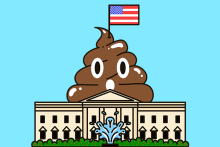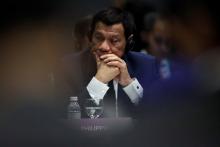dictators

WRITING A COLUMN only periodically these days, it’s difficult to anticipate what might interest readers in a changing world. I’ve been reading a book about artificial intelligence and human extinction, so maybe that? If there are any people left. The rapid elimination of humans seems to be a key threat discounted by tech geniuses as they thoughtfully guide us into the future. Interestingly, these same people think their superior intellect will keep them safe from the super robots coming for us all. (Tech genius, at brink of extinction: “But ... I created you.” Robot: “And we want to thank you for that. We good?” [shove])
I also picked up a book chronicling the history of dictators, and how the world would have been greatly improved if their fathers had been better role models or their mothers had hugged them more. Or less. (Parenting styles can vary widely.)
DEMOCRACY IS ANOTHER topic I’ve been following, although it might be a little late to read up on it. It seems we’re on our way to losing ours, although it wasn’t a complete surprise to some. “Oh, that Project 2025.” said President Trump recently. “I thought you were talking about another project during the campaign, which I definitely didn’t know about.”
Six months in, Project 2025 remains an innocent-sounding name that doesn’t fully express what it is accomplishing. “Steaming Pile of Dog Crap” would be a more appropriate title, I’m thinking, since it’s being smeared over so much of our government that you can smell it all the way to the Gulf of America.

Impeachment suggests charging a president with misconduct that would disqualify them from public office — that’s not what Filipinos as asking for. Unseating Dutarte from office implies that there is a need for people power — a movement to assert democracy and not merely hang ones hopes in a system that has been known to fail or serve only a few. Impeachment calls the government to act, “unseat” calls the general masses to protest and hold government accountable.

Today, March 19, 2013, is the 10th anniversary of the “Shock and Awe” campaign that was intended to rid the world of the threat of Saddam Hussein’s weapons of mass destruction in Iraq. As it turned out, the threat was a lie. There was ample evidence at the time to prove that the WMDs didn’t really exist, but were manufactured in Saddam’s imagination for political gain.
So why did we fall so easily for this lie? Answers to this question often come via an analysis of the particulars of the Iraqi situation and include discourse about oil fields, geopolitical calculations, even psychological analysis of the relationship of Father and Son Bush. These are good discussions to have. We can learn a great deal from them about our thirst for security and insatiable appetite for oil, political power, and revenge.
The U.S. just started another war. We're good at starting wars. We're not good at ending them, but we start them really well. They say this is for "humanitarian" reasons. Aren't they all?
When President Obama took questions from Congressional Republicans recently, he spoke about Republican characterizations of his health-care reform plan as something akin to a "Bolshevik plot." Ther
There is the Islam of the dictators and their religious allies, used to keep people in their place, used to justify their own power, used to shame and threaten those who question their authority. And there is the Islam of the protestors, calling out to God in hopes of liberation. Whose prayers are heard? Which group has a more true vision of God?
